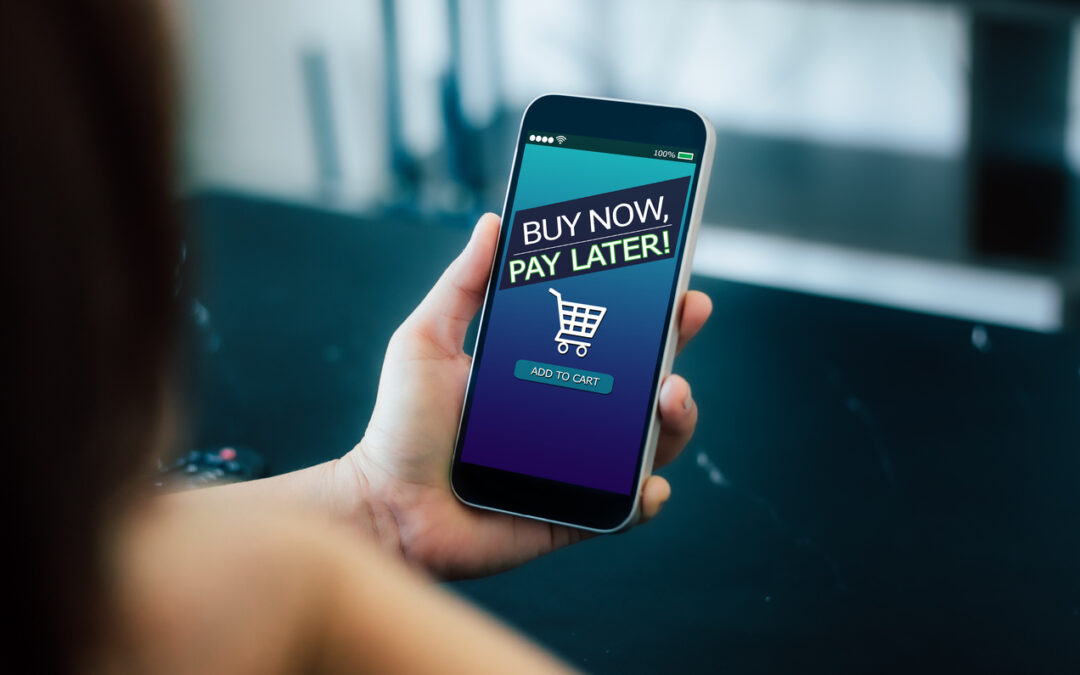Buy now, pay later (BNPL) programs can be enticing for people who are short on cash and ready to make a purchase. These programs are low- or no-interest installment payment plans retailers, often online merchants, may offer at the time of purchase. BNPL plans may be helpful for those who are nearing their credit card limits or don’t yet qualify for a credit card.
Experian, one of the nation’s leading credit reporting agencies, noted that from 2019–2021, the number of BNPL loans from popular providers increased by 970 percent. It makes sense; BNPL programs don’t require a credit check and allow consumers to pay for purchases over a period of time, which is more manageable for some budgets. But they also carry risks.
How BNPL programs work
When you agree to a BNPL payment program, you will make equal installment payments on a set schedule over several months, like a personal loan. You will pay no interest if you pay the required amount in full and on time. Credit cards, by comparison, charge interest each month on any unpaid balance. According to LendingTree, the average credit card interest rate in America is 24.61 percent, and at five-year high point. Even if you carry only a small balance, the interest charges alone could take a big bite out of your monthly budget. This alone makes BNPL programs attractive.
It’s easy to be approved for a BNPL. They may not require a credit check which is ideal for consumers without a credit history or those working to rebuild one. Before you sign a contract, though, read the fine print to understand all terms and possible penalties.
What’s the risk?
If you’ve struggled to make on-time credit card or loan payments in the past, a buy now, pay later program may not be the best option, even if it sounds like a good deal. Review the terms and know your grace period (the deadline by which you must make a payment before incurring a late fee). Many BNPL plans require multiple payments within the same month.
BNPL’s can give you a false sense of affordability, encouraging you to spend more than your budget can manage. Some even charge a fee on top of the purchase price. This means you’ll pay more than you would have if you paid in full at the time of purchase.
Review the schedule for all your automatic payments and ensure you’ll have enough in your credit union account to cover the payment when it is deducted. If not, you could pay overdraft fees.
If you can’t make your payments on time, the BNPL provider could turn the account over to a collection agency, which puts your credit score at risk.
In addition, many credit cards offer cash-back rewards based on the dollars you charge. That’s free money you could use to pay your balance or increase your savings. BNPLs don’t offer rewards.
BNPLs can be an option to help you pay for a purchase and avoid interest if you’ll have the necessary funds within a short time.
Another alternative is to explore a low-interest personal loan or credit card from your local credit union. They can review your entire financial situation and help you map out the best plan for paying your bills and meeting your goals.

